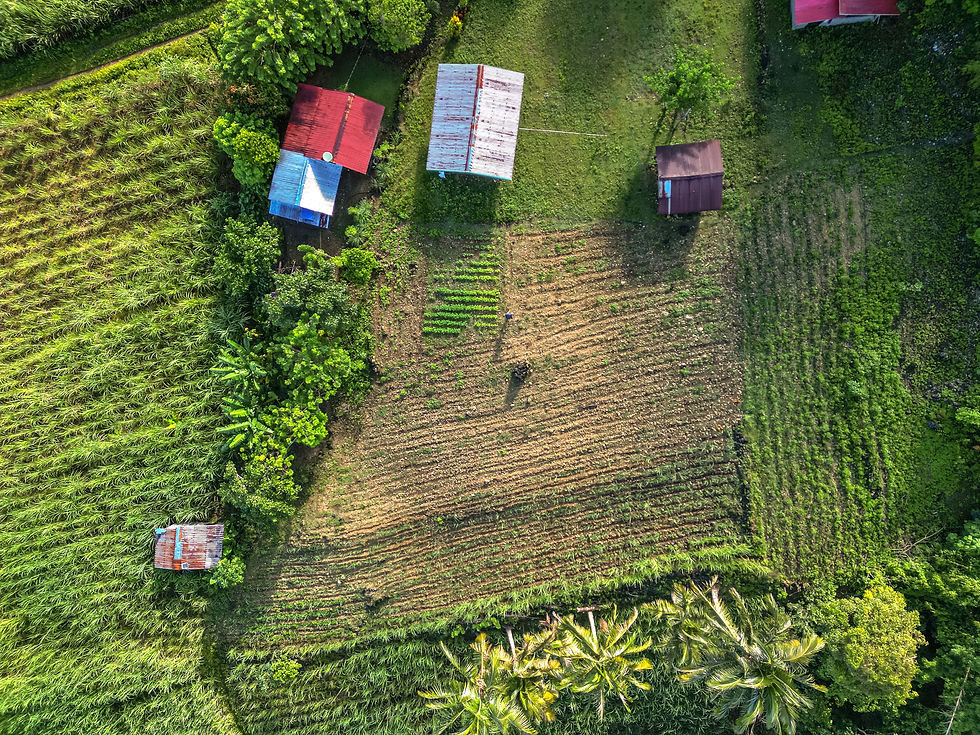Key Work Areas
SEARICE empowers small farmers by equipping them to transform their agri-food systems to sustainable and resilient agri-food systems through agroecology, and by promoting farmers' rights by mainstreaming a human rights-based framework in agri-food systems.

Agroecology
SEARICE promotes Agroecology, an integrated approach that simultaneously applies ecological and social concepts and principles to the design and management of food and agricultural systems. It works to ensure the sustainability of agri-food systems by addressing the environmental, socio-economic and political challenges besetting agri-food systems and the livelihood of farmers, especially smallholders and peasants.
Climate change, and the effects associated with it, including rising temperatures, rising sea levels, increase in extreme weather events which bring about flooding and drought, among others, pose some of the most obvious environmental challenges to agriculture. At the same time, the agriculture sector is often blamed for greenhouse gas (GHG) emissions that contribute to the climate emergency. In reality, conventional, corporate, large-scale, monocropped agriculture systems are the largest GHG emitters in the agriculture sector, compared to smallholder and family farmers. The narrow focus on increasing production at all costs is at the root of the philosophy, history and continuing ascendancy of the corporatization of agriculture, with its attendant consequences of soil degradation, water pollution, and rapid loss of biodiversity, among others.
SEARICE posits that Agroecology can transform food and agriculture systems by addressing socio-economic and political barriers.
Agroecology puts people, especially farmers, at the center of the new food system. People are not beneficiaries but rights holders, not as a matter of charity but by virtue of their inherent human rights.
Agroecology holds States to account for their duty to fulfill the rights of farmers. It is founded on the human rights principles of participation, non-discrimination, transparency, equity, as well as the interdependency of the rights to food, health, and education.

SEARICE conducts baselining workshop with the TFA farmers association in Tagukon, Kabankalan City, Negros Occidental province, Philippines
Agroecology in practice
The critical state of agriculture has spawned the rise of various approaches that are aimed at transforming the entire value chain of food and agricultural systems, from farm to table. Agroecology in particular is associated with farming practices, that highlight diversity, integrated farming systems, nutrient recycling, and optimization of interactions of plants, animals, humans and the environment, relying mostly on on-farm resources and excluding any practice that may contribute to biodiverisity loss and can harm the environment.
However, agroecology is not just a package of technologies but a philosophy and a way of life. It is based on sound science and marries proven age-old practices of farmers, especially smallholder farmers – practices that are rooted in their traditional knowledge of finding solutions to their problems, grounded on their local context, and built on locally available resources and internal capacities.

SEARICE conducts baselining workshop with KMASCA farmers association at Barangay. Kabugan, Tagukon, Kabankalan City, Negros Occidental, Philippines
Agroecology as a matter of policy
More than the application of ecological principles to agricultural systems and practices, agroecology calls for an explicit focus on the social and political dimensions of food systems.
Good governance is essential to operationalizing this transformative agenda. The United Nations Declaration on the Rights of Peasants and Other People Working in Rural Areas (UNDROP) already provides the framework and the tool to enable the rights of peasants and the right to food. However, UNDROP still requires an effective mechanism to guarantee its full implementation. The UN Guiding Principles on Business and Human Rights is another important element of the nexus to regulate the behavior and operations of agrochemical corporations, food processing companies, and all other private entities engaged in food production, processing and distribution.
In concrete terms, SEARICE posits that the genuine transformation of agri-food systems requires the following:
-
Policies that will facilitate the urgent transition to sustainable food systems, including support for family farming and agroecology; the localization of food systems; and the rebuilding of the local economy;
-
Enhancement of local capacities, especially of women and the youth;
-
Social protection for smallholder food producers and consumers;
-
Restoration of the integrity of scientific research as a public good; and
-
Inclusive and transparent policy-making process that guarantees participatory governance in the integration of food and agriculture policies.

SEARICE conducts baselining workshop with OFWABACA farmers association at Barangay Camingawan Kabankalan City, Negros Occidental Province, Philippines
